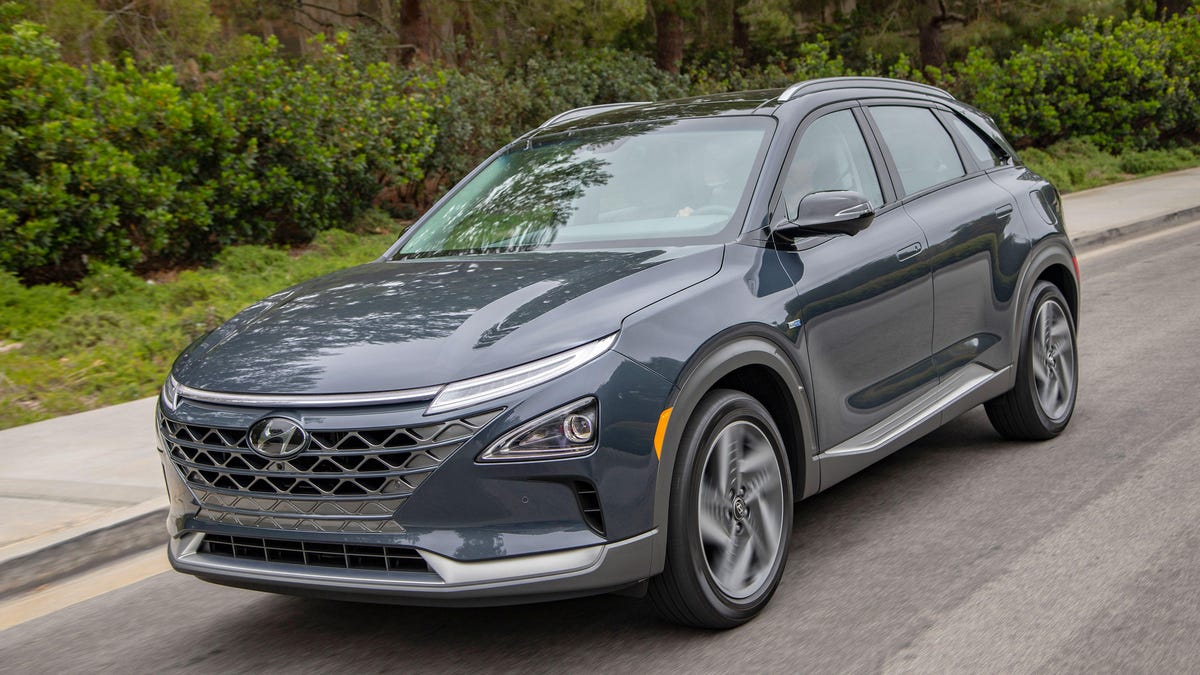Hyundai doesn't see fuel cell sales slowing in near future
Actual sales have outstripped Hyundai's initial forecasts for 2019.
If battery-electric cars are uncommon, hydrogen fuel-cell vehicles are sparse. Despite being an uncommon sight on US roads, fuel-cell cars will only grow in popularity. Or at least, that's what Hyundai 's betting on.
The automaker is one of a handful to produce and sell a fuel-cell vehicle -- the Nexo crossover SUV -- and so far in 2019, demand has overshadowed the company's initial sales forecast. The South Korean automaker told Autocar it's sold 5,500 Nexo crossovers in the Asian country alone. This has effectively hurt supply for the US and Europe, but the company said it's fulfilling those orders first.
For some comparison, Hyundai only expected to deliver 1,500 fuel-cell vehicles in 2019. Production capacity now sits at 40,000 vehicles per year. That figure is still shy of what's needed to enjoy economies of scale, according to Sae-Hoon Kim, head of Hyundai's fuel-cell business, but progress is progress.
The automaker is doing its best to meet demand, Kim told Autocar, but demand continues to grow. He sees this continuing, especially as fuel-cell cars become less costly.
"At around 200,000 units a year you get the scale to buy the materials you need at a cost that could put a hydrogen car on a cost par with today's battery-electric vehicles," he said. Kim added that, at its current rate, we should see cost parity happen in about five years.
Fuel-cell vehicles offer a different take on zero-emissions driving. Rather than plugging them in like an electric car, the fuel cell runs on hydrogen fuel. The fuel cell converts the fuel into electricity, to put the process into very simple terms. However, hydrogen refueling infrastructure is seriously limited in the US -- more so than charging stations even. However, they still pose a possible avenue for buyers in the future, especially if automakers pour more support into hydrogen fueling infrastructure.


